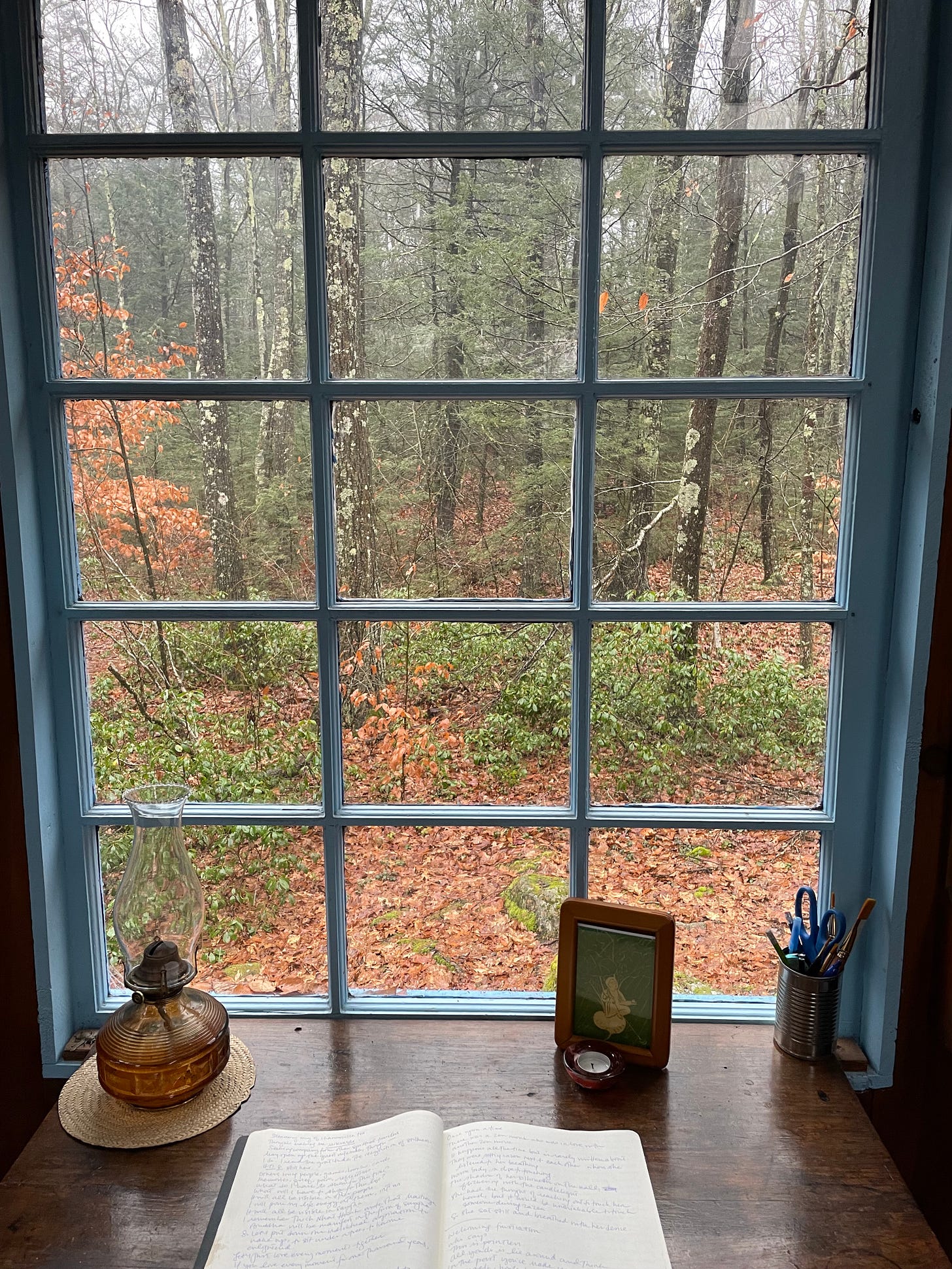Letter #2: Failure
On loving the one who fails
I knock on the door to the supply closet.
“Come in!” a cheerful voice calls out.
I open the door to see Jefre, a fellow Zen priest, finishing tying the belt on his robes. It’s the third day of our annual five-day Rohatsu sesshin, held at Christ Church in Brooklyn. We’re using the closet as a changing room.
He looks at my face. “Are you okay?”
“I’m tired,” I say, sinking into a chair and starting to cry. His face softens. “I can’t do this,” I say with anguish. “I can’t be a priest. I’m late to every period of zazen, and I don’t even know how to sit zazen. I’m literally falling asleep and thinking the entire time. I’m a fraud. I don’t want to put on these robes. I’m a complete and utter failure.”
He listens patiently until I’m finished. And then he says, “Okay. Then let yourself be a failure. And love the one who’s a failure.”
“Okay,” I say, and then the tears really started to come. Jefre takes my hand, and we stay together as I cry.
After the pain subsides, we sit quietly for a moment. Then Jefre looks at the clock. “Oh, zazen's about to start. Time to put on your robes!” he says, slipping out the door with a smile.
*
I’m writing this from a cabin at Temenos, where I spend a week every winter after Rohatsu being with myself. Without electricity or running water, and no other people in sight, everything becomes very quiet, still, and vivid.
And today somehow that same story came up: I’m a failure. I’m a complete failure. I didn’t finish the hike I started out on—I slipped and fell and got discouraged—I made a strange lunch—nothing will come of this retreat or of my life—my spiritual practice is not good enough—I’m not even making art of this—and I never will—because I’m a failure.
I remember meeting with Teah Roshi in dokusan shortly after ordaining as a priest. I told her about how my mind loved to use priesthood against myself, just another standard to fall short of.
I said, “And then I’ll have the thought: It’s because your practice is not good enough that you feel this way.”
“Ouch!” she said with feeling, reeling backwards. “Oh, that hurts.”
Usually, I throw myself into various activities to find something to assuage all this shame and loneliness. I try to do something helpful, productive. I might respond to emails, or find someone to connect with. But there is no one here, and no emails to respond to, nowhere for me to exert the strategies to shore up my self-worth.
I have no choice but to do as all my teachers have taught me. I will have to be whoever I am this day. And I will have to love that one.
I spend the day lying on rocks, letting the sun warm my face. I watch water drip from icicles glittering like long teeth from a mossy ledge. I sit in front of a frozen pond and throw a rock just to hear the sonar ping of the cracking ice. I am completely idle, doing nothing, accomplishing nothing.
I don’t know when I wake up or go to bed, as there are no clocks. I lie in bed, thinking about the monastery, about the year to come, reliving memories of the past.
A recurring voice: You’re just wasting time! You should have realized emptiness by now!
Another voice, of a dear sangha friend: I’m tired, I’m just so tired of trying to be good.
I’m tired. I would rather love myself.
So I turn toward the pain and say: I know.
I take its hand.
I let it cry.
And then we stand up and go get firewood together.
With gratitude,
Kaishin



Thank you for this, Kaishin.